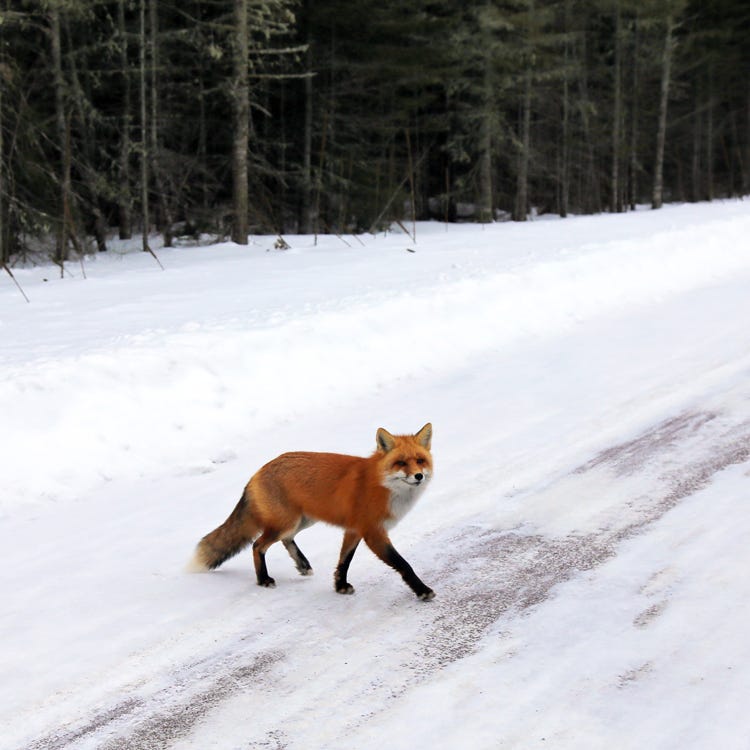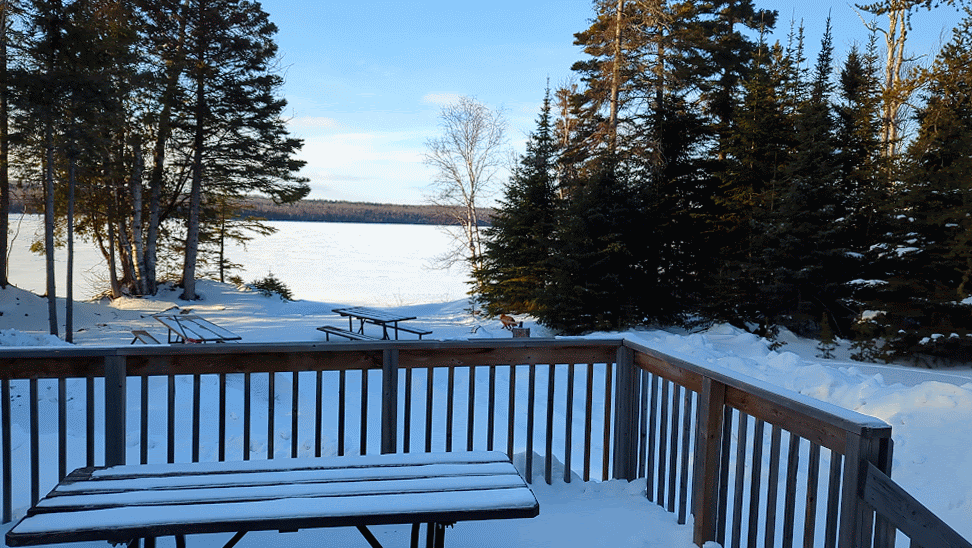✍️ New Adventures in Planned Pantsing
or, Humbly Building upon Atwood’s Worthy Advice for the Innocent Pilgrim
Margaret Atwood wrote in Negotiating with the Dead: A Book about Writing:
“Advice for the innocent pilgrim… you never step into the same river twice."
I love that, because it implies that writing is as much about a time as it is a place or a routine.
Have you ever gone back to a place from your past and felt… empty? All the memories are there, but the energy is not. This happened to me when I visited a restaurant in Hamilton, Ont. that I used to work at. So many memories! But they were only ghosts. Although the physical place was the same, the unwinding of time made all the difference.
So it is with novel writing.
Ian Rankin, who I recently listened to on the podcast, The Writing Life, said something similar. He talked about expecting novel writing to get easier once he “learned” how to do it. Except, he said, he found it doesn’t work that way. Every novel writing experience is different.
What follows in this post is not intended to be “the answer” for pantsers. I’ve learned personally over the years is that definitive answers do not exist. At least, not in as much as you can follow someone else’s map to get to your own mountain top. And, as Atwood and Rankin and so many other writers have pointed out, you can’t even follow your own map the next time around.
But I am very excited about the writing retreat weekend, what I did, and what I learned, and I’m sharing that here with you.
Planned Pantsing – What Does That Even Look Like?
The weekend for me was essentially an exercise in planned pantsing. If you’re new here and unfamiliar with pantsing vs. planning/plotting, check out this post, “In Defence of Pantsing”.
Planned pantsing then is pantsing the story, but with some parameters. The goal was to get down as many words as possible in a straight narrative, with the 50,000-word goal serving as an impossible goal to spur on writing without too much thinking, research, etc. Planned pantsing prizes storyline above facts, steak above sizzle. Not that facts and sizzle are unimportant, just that I’ll go back and fill those in later…
You could look at planned pantsing as an initial sketch of the story.
Here’s how the weekend shook out:
Writing Retreat by the Numbers
Days 3+
Word count goal: 50,000
Word count actual: 16,559
Success Rating, 1 to 10 stars: 8.5
Foxes sighted: 19
Northern Lights sighted: 0
Stars sighted on the walk back to the Boys Mojo Dojo: 2,389,849
Robins sighted: 1 (“You’re going the wrong way!”)
Now picture this: a group called the Laughing Foxes Writers consisting mostly of Thunder Bay and area writers getting together on the Sleeping Giant over the (Canadian) Family Day long weekend. The very loose structure includes meals together; short workshops; opportunities to walk, snowshoe, cross-country ski, and/or skate in Sleeping Giant Provincial Park; and some time to socialize. But there aren’t any obligations for group activities except for a couple of kitchen chores. You are free to literally disappear for the whole weekend and focus on your work.

I personally go for the camaraderie as much as the writing. Probably more so. My writing goal was simple: 50,000 words of my novel. This was impossible, I knew. But reaching for the stars sometimes gets you over the moon. I designed it as a way to don’t think; just write.
Spoiler alert: it totally worked! If you want to get in the weeds about my process, read on. Otherwise, feel free to tl;dr and skip ahead to “What I Learned” below.
My Writing Process
My plan was actually to not plan too closely. I believed that when I got there, all would become clear. I was partly right. Going into the weekend, my novel was a collection of disparate, disconnected scenes that span the story from beginning to end. What I wasn’t sure of was how I wanted to go about connecting these scenes.
On the Friday night, I opened a blank document and started writing the novel again from the beginning. I figured writing the beginning from scratch might give me momentum to push through the next several thousand words. I quickly got bogged down after only about 1,000 words. Those words clearly were not as good as the ones I’d already written, and writing them again only discouraged me. I needed a different tack.
So, the next morning, I decided to simply choose a point and start writing. I didn’t think too hard on where to start. I picked up my keyboard and belted out brand new words from about a third of the way into the story. Some of the ideas I had in my Obisidian file slipped in naturally into new scenes. The happy-stance was that scenes I’d already written suddenly fit together like puzzle pieces. I literally added notes like:
[Add turnip section here]
And BOOM!, the world in the novel started shifting and clicking and landing in place.
Oh, and there were some neat little coincidences, too. There always is when I write a novel – synchronicities as I call them that feed into the book. But these took on a new dimension as I introduced random events from the retreat.
For example, on Saturday afternoon, I wrote a scene involving Tarot cards. I hadn’t decided which card to use – I’m not very familiar with all the cards and their meanings, so I planned to research that later. I mimicked the section addition: [ADD TAROT CARD NAME HERE].
That evening, out of the blue, someone whipped out a deck tarot cards. There were only three of us there, and the second person drew a single card. I said to myself, whatever that card was, I’d use it. Turns out, it’s one of the worst cards in terms of meaning. But it fit my storyline perfectly. (Another coincidence: two other people pulled the same card the next night, including me. Mine was from a totally different deck, so it wasn’t even a matter of shuffling! I believe in coincidence over destiny, but the experience was freaky nonetheless…)
By Sunday night, I had passed 16,000 words and was sailing towards getting to almost half my goal. It wasn’t to be, though. On Monday, a lack of sleep finally caught up with me. I don’t sleep much when I’m travelling – the excitement of it all, maybe? – which is fine when you’re heading for a walk and drinking café au lait all day. But it wreaks havoc on my creative mind, and I ended up stupefied most of the day, generating only a few hundred words. I won’t lie: I was deflated by how the weekend ended. That was short-lived. Overall, I’ll chalk up the retreat as a great success.
What I Learned
The stated goal was to write 50,000 words, but my true goals were to:
1. Get down as many words as possible in a straight narrative (with the 50,000-word goal serving as an impossible goal to spur on writing without too much thinking, research, etc.)
2. Experiment with planned pantsing.

I was focused and quickly got into a rhythm. The 16,000 words represent a strong first draft. (Hey, I would have been happy with a Zero Draft, so somewhat workable words is even better!)
The approach also helped me see more clearly where the novel is going. The sections I’d already written sat alone like oases on a desert road. But at least a few of those roadsides got filled in, so I know I’m on the right path.
It taught me to trust the process. This is something I already knew in theory, but had to relearn in practice. Funny how you can “know” the right way to go about things, but somehow think that this situation is the exception. It is not… lol Keep writing and things will fall into place.
The experience encouraged me to keep going with the novel. This book/story has been difficult to get into. I’m still trying to nail down themes and storylines – you know, learn what it is I want to say. This led to wheel-spinning and (ahem) research. But that weekend, I got a strong sense that I could work out those details as I write.
I learned that world events are deeply affecting me and my creativity. Threats of annexation, a looming recession, and general political and economic chaos are weighing on me more than COVID ever did. At one point, I wondered if it was even worth writing a novel, particularly in terms of the novel’s storyline. I played with the idea of writing something more relevant to our times. But I’m not sure what that would be yet. Besides, knowing me, some of the current messed-upedness is bound to leak into this novel anyway. Stepping away from the news for a weekend relaxed my creative mind (and my nerves!).
For the moment, I’m going to write the novel for me, and take what comes. If it changes down the road, so be it. I successfully stayed away from news for the weekend, which took away a lot of the stress as well.
I realized that I can do this planned pantsing in smaller spurts. Two large projects were keeping me away from my novel in the evenings, but I now have more time to spend on it. I’ve established a planned pantsing rhythm, so I can continue writing until I have a solid – and complete – first draft.
I’ll keep you posted on my further forays into the river…
Until next time... keep writing with wild abandon!
~Graham
email me if you get lost.







An incredibly beautiful place to be writing from! 😍
You know, until you said that current events are more depressing/distracting than the pandemic and lockdowns (I’m paraphrasing your words), I hadn’t realized how true that is for me too. Thanks for that perspective.